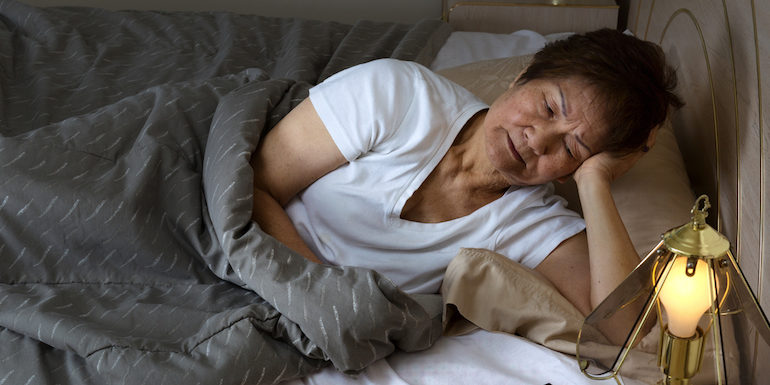The American Academy of Sleep Science reported an interesting study they conducted of adult twins regarding sleep patterns and depression. The results are important for chronic pain patients who generally suffer from sleep issues and mental health concerns. Here’s what you should know.
Poor sleep and depression
They studied 1,788 adult twins to determine if there was a gene related to self-reported sleep durations and symptoms of depression. The results suggested sleep that did not fall into normal, healthy ranges led to an increase in the genetic risk for depression.
Twins who had a normal sleep schedule of seven to nine hours per night only had a 27% increase in depressive symptoms. However, this increased to 53% among twins who only received five hours of sleep per night. Interestingly, it also increased to 49% for subjects who reported ten or more hours of sleep at night.
“We were surprised that the heritability of depressive symptoms in twins with very short sleep was nearly twice the heritability in twins sleeping normal amounts of time,” said principal investigator Dr. Nathaniel Watson, associate professor of neurology and co-director of the University of Washington Medicine Sleep Center in Seattle, Wash. “Both short and excessively long sleep durations appear to activate genes related to depressive symptoms.”
According to the CDC, 9% of adults in the United States meet the criteria for clinical depression. The National Institute for Mental health suggests 11% of teens also suffer from depression. Undoubtedly, many cases of depression go undiagnosed and untreated.
This study shows that sleep deprivation can be a major contributor to the occurrences of depression.
Getting healthier sleep
We know how difficult it can be to get good quality sleep when you’re in pain. Here are a few tips for healthier sleep:
- Before bed, write a list of things to remember for the next day
- Establish a relaxing nighttime routine
- Don’t eat too late or right before you go to bed
- Don’t consume caffeine within four hours of your bedtime
- Sleep in a comfortable bed
- Keep the room dark and cool
- Go to sleep and wake up at the same times each day
If you believe that depression is affecting your sleep cycle or your lack of sleep is causing depressive symptoms, talk with your doctor about the right treatment and solutions.
Does your quality of sleep affect your mood?


